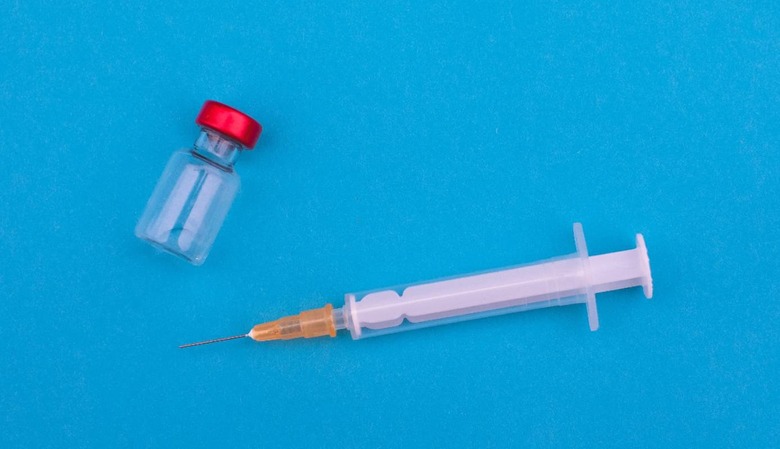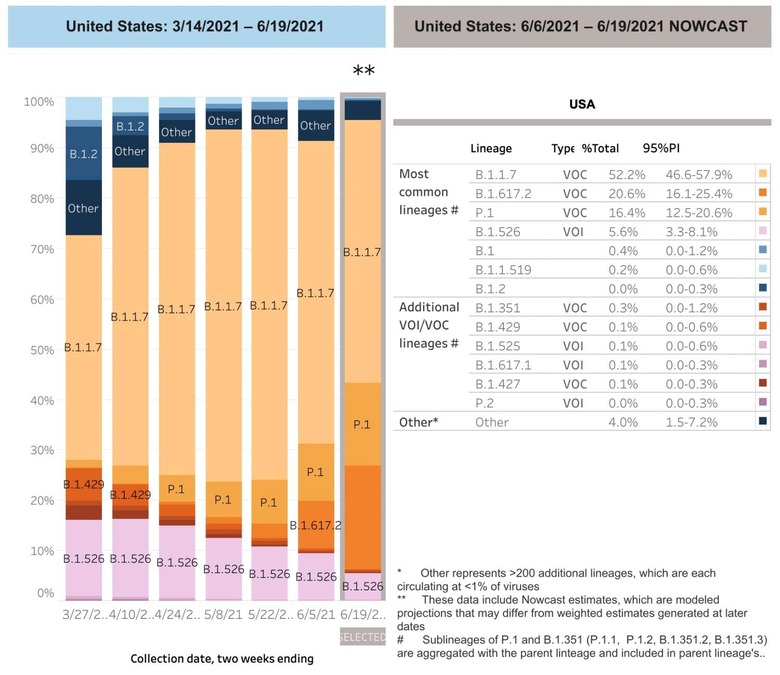WHO: COVID-19 Delta Variant Means The Vaccinated Should Still Wear Masks
Even fully-vaccinated people should continue to wear face masks, the World Health Organization has warned, in order to slow the spread of the COVID-19 Delta variant. Despite several countries, including the US, softening mask requirements in recent weeks, the WHO has cautioned that new, especially virulent versions of the coronavirus could still be an issue.
The Delta variant of COVID-19 is one of the most recent to be observed in the wild, but also one of the most concerning to scientists. Particularly prone to spreading through communities, cases have been rising in the US as a proportion of overall COVID-19 infections. As of last week, 1 in 5 recent coronavirus cases in the US were of the Delta variant, the CDC has said.
According to US Centers for Disease Control and Prevention forecasts, the Delta variant is on track to become the second most widespread type of COVID-19 in America in the first half of June. In some areas it's even more prevalent than that.
The current mRNA vaccines in deployment in the US, from Pfizer and Moderna, are believed to be effective against the Delta variant, the CDC has insisted. However, officials at the World Health Organization have cautioned that its increasing prevalence means even vaccinated people shouldn't let their guard down.

"People cannot feel safe just because they had the two doses," Dr. Mariangela Simao, WHO assistant director-general for access to medicines and health products, said in a statement, CNBC reports. "They still need to protect themselves."
The challenge is that the vaccine won't stop community spread of COVID-19. Although working as designed – to reduce the severity of symptoms and overall impact of coronavirus infections, thus cutting dramatically the likelihood of hospitalization or death – immunization won't necessarily stop you from catching COVID-19 at all. Instead, it simply reduces the likelihood of a serious case resulting.
"People need to continue to use masks consistently, be in ventilated spaces, hand hygiene," Dr. Simao added, "the physical distance, avoid crowding. This still continues to be extremely important, even if you're vaccinated when you have a community transmission ongoing."
As a result, the WHO is making a plea for those fully vaccinated already to continue masking up when out in public. That way, unvaccinated people will be less at risk too. It's not just altruism that could be a motivator, either; if COVID-19 variants are allowed to spread rapidly, there's the possibility that they could further mutate more rapidly too, with unforeseen impact on even those who have been immunized against the current strains.

Healthcare officials and pharmaceutical companies have already cautioned that COVID-19 vaccine boosters are likely to be the new normal, with annual shots most probable. That, however, depends on how rapidly new variants of the coronavirus emerge, how prone to community spread they are, and how debilitating being infected might be.
Early research into the Delta variant has suggested that, in addition to being more aggressive in how quickly it spreads, the symptoms of those infected could be more severe as well. Further investigation into that possibility is underway, as well as into the efficacy of other vaccines in use world word.
Speaking in Raleigh, NC, on Thursday, US President Joe Biden said there was "serious concern" about the Delta variant. Dr Fauci had "made it clear," Biden said, "that it's more easily transmittable, this Delta variant, potentially deadlier, and especially dangerous for young people."
"This Delta variant — you know there's going to be others as well," Biden warned. "You know what's going to happen. We've got to get our young people vaccinated."
In the US, 151.6 million people are now fully vaccinated, and over 178 million people have had at least one dose, according to the CDC. That means almost 48-percent of the total population is fully vaccinated, and over 56-percent of people aged 18 or above. Nonetheless, vaccination rates in some states remain relatively low, particularly in the south, leading to concerns that the Delta variant could sweep through those communities and see an uptick in death rates.
